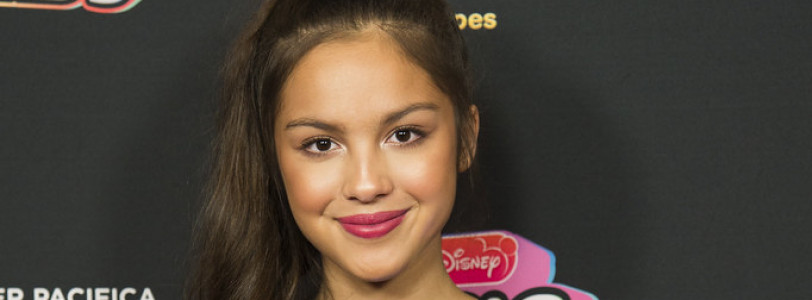Olivia Rodrigo has recently added writing credits to her song good 4 u after a viral TikTok trend compared her song with Paramore’s song ‘Misery Business’. The songs share similarities, but were not sampled from, nor written by the parties who were credited, Hayley Williams and Josh Farro.
Music has always been a culture of inspiration and creative freedom, even to the extent of stealing a motif here and there and developing it into something completely different and unique. It’s all part of being a composer. There is no way anybody can make a 100% original composition without sharing motifs, harmonies, structure or chord patterns. Even Mozart gleaned a few ideas from the choirs he attended at The Vatican!
However, society looks like it’s on its way to tearing down that culture. Making Rodrigo add writing credits to a song she wrote herself may seem unimportant, especially because it has already been dealt with, but it has started a toxic era of copyright claims and interpolation…
What actually happened?
Olivia released her debut album, Sour, in May 2021. Every song in the album ranked in the Billboard charts, with the album spending 5 weeks in the top spot. Its popularity was very much driven by its success on TikTok; good 4 u was trending on TikTok for months and more than 2.6 million creators used the sound.
As the sound started trending, people realised it shared some similarities to Paramore’s hit song, Misery Business. Suddenly, the mash-ups started rolling in and that sound started trending too. This is where it gets interesting…
Because of the similarities and the traction that the trend gained, people started to notice, including Hayley Williams and Josh Farro. To avoid lawsuits and slander from the public, Rodrigo gave both musicians writing credits and over $2.4 million in royalties, meaning they will be earning just as much as Olivia.
The thing is, the songs may sound similar, but Paramore didn’t help write good 4 u – they weren’t even consulted. Rodrigo was simply inspired by the music and that inspiration led to the creation of her hit song.
Not the first to be inspired, but one of the first to get caught out
Let’s take a step away from Olivia for the moment. Yes, what she wrote was similar to Misery Business, but it’s not the same song. Musicians have been writing songs for literally centuries now, so how on earth are we meant to be 100% original, all of the time. The only ‘new’ music that is out there, is the super contemporary far out concept pieces. Trust me, I’m a music graduate studying a masters in music composition, I know what I’m talking about. Even the weird new music isn’t that weird anymore. We’ve exhausted pretty much every part of music composition in every direction, sometimes barely in the boundaries of what is classed as music. So, of course there are going to be songs that are similar!
Still not convinced? I’ve got some real life examples for you. First of all, you may or may not have heard of ‘4 chords’ by Axis of Awesome, but it’s a great example of what I’m talking about. The duo sing 47 popular songs to the same 4 chords over and over to show that most pop songs use the same chordal structure and similar tempos. Those songs aren’t even the only songs with those chords! Their version was released in 2011, and there are countless more that have been created since then.
That’s hardly convincing...
Ok yes, that’s just the chords. The style and genre of those songs do vary a bit, so let’s dig even deeper. Hamilton – that record-breaking musical written by talented wordsmith and creator, Lin-Manuel Miranda, with music everyone fell in love with last year after it’s release on Disney Plus. Most of the songs in that musical are ‘inspired’ by other songs. Lin does credit a few musicians in the playbill and received permission to use obvious references. But some have fallen under the radar, even Lin may not have noticed some of these similarities.
You’ll be back
A classic. The comic relief of the show. How could this possibly be similar to anything? You might be thinking “Yes, it was inspired by British culture and artists such as the Beatles, but close enough to any song to be seen as copying? No way!” Well, you’re wrong! On my first watch through of Hamilton (I had never previously seen or heard Hamilton, so I had no idea what to expect), I thought it sounded a lot like Grace Kelly by Mika, I even made a TikTok about it! The quality wasn’t very good, so I here’s a newer, slightly better sounding version:
I know right...They are basically the same song. They are the same key and tempo and I barely changed a thing, just faded the two parts in and out.
‘You’ll be back’ was the most obvious to me in Hamilton, which is why I used that as an example, but Helpless also shares the same vibe as Mysterious Girl by Peter Andre. They aren’t in the same key, but the similarities are undeniable.
What does the future look like?
My point is not that we should make everyone accountable and ensure that they add writing credits to their songs that sound similar to other artists, just to make that clear. Every musician has a song(s) that sounds like other songs, that’s just part of being a musician. Unless it is blatantly obvious that a song has sampled another song without permission, there shouldn’t be any conflict.
The situation that Olivia Rodrigo has been put in sets a bad precedent for the future. Will all artists now have to scour every song that comes to mind when they listen to their piece and credit them? Can any artist now claim that someone has stolen their song and they should earn royalties? If that’s the case, what’s the point of even making music anymore if the industry has become a minefield. Musicians shouldn’t care about credits, and other people being inspired by their songs. If anything, they should be flattered.
So, please, let’s not go down this volatile route and let’s allow people to be creative and have the creative freedom they need to create new music.







0 Comments